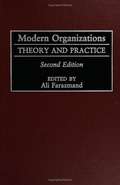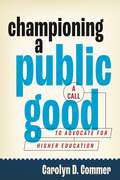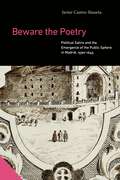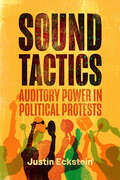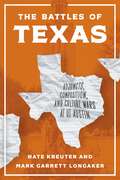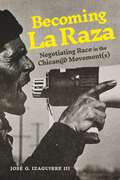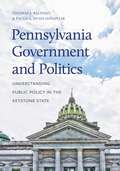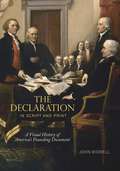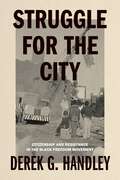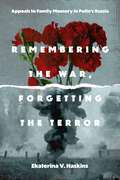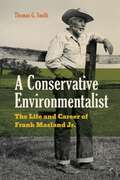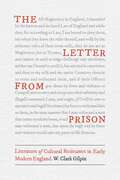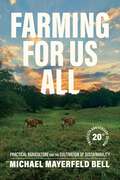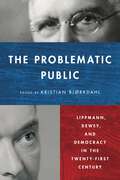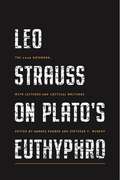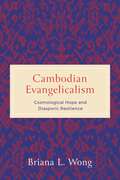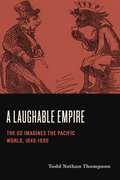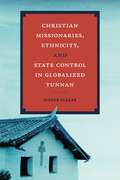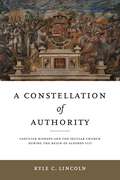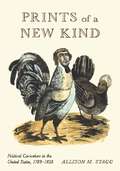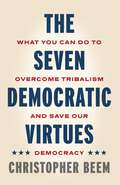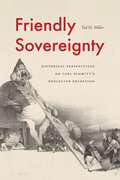- Table View
- List View
Modern Organizations: Theory and Practice (2nd Edition)
by Ali Farazmand<p>Farazmand and his contributors examine modern organization theory and behavior. They view organization in two ways: As an organization of society into public, private, and nonprofit sectors, and they examine the power structure and those power elites who determine policy choices and outcomes. They also look at organizing activity, such as creating institutional arrangements to perform certain functions or tasks, as well as organizational entities of all sizes. <p>Using a balanced approach to analyze modern organizations' managerial expectations and individual/citizen expectations and demands, the book presents a succinct analysis of theoretical and conceptual perspectives on modern organizations, their management, and their interactions with other organizations in an environment that is becoming increasingly global and integrated worldwide. Although all organizations are covered, the emphasis is placed mainly on public organizations. The book also addresses key issues of organizational change, reform, and reorganization of governments in both theoretical and empirical ways. A key text and handbook for scholars, students, researchers, and practitioners of public administration and the management of nonprofit organizations.
Championing a Public Good: A Call to Advocate for Higher Education (Rhetoric and Democratic Deliberation)
by Carolyn D. CommerFrom decreased funding to censorship controversies and rising student debt, the public perception of the value of higher education has become decidedly more negative. This crisis requires advocacy and action by policymakers, educators, and the public. Championing a Public Good presents a clear set of strategies and tools for advocates making the case for renewing our civic commitment to public higher education.Taking a fresh look at one of the most controversial moments in the history of US higher education, the work of the Spellings Commission (2005–2008), Carolyn D. Commer argues that this body’s public criticisms of higher education and its recommendation to increase accountability and oversight—via market-based metrics—accelerated the erosion of the concept of higher education as a public good. Countering that requires a careful, forceful approach on the part of advocates. Commer draws from the public record to demonstrate a common set of arguments, metaphors, and rhetorical frames that can, in fact, flip the public debate over higher education to champion the public value of universities and colleges over their value as market commodities.Championing a Public Good is a powerful primer on how to change the course of public higher education in the United States. It will appeal especially to faculty, administrators, and policymakers in higher education.
Beware the Poetry: Political Satire and the Emergence of a Public Sphere in Madrid, 1595–1643 (Interactions in the Early Modern Age)
by Javier Castro-IbasetaIn the early seventeenth century, Spanish rulers were confronted by an avalanche of political satires. Beware the Poetry shows how these poetic libels helped articulate an early form of the public sphere, profoundly transforming political culture.Exploring a rich trove of mostly anonymous satirical works, together with newsletters, sermons, and plays, Javier Castro-Ibaseta reconstructs the experiences of Madrilenians during the reigns of Philip III and Philip IV. Castro-Ibaseta proposes an original theory of political publics that corrects approaches that assume early modern Spain’s public sphere mirrored the politics of England or France. Instead, he shows that in Spain publicness was distinct because the satires—about the king’s favorite, and even about the king himself—were consumed for pleasure and entertainment. They did not create political communities or stir rebellious movements. Read diachronically, the long, continuous, evolving collection of satires reveals not just the opinions of the poets but something far more difficult to reconstruct: the shifting demands, interests, uncertainties, and worldviews of the audience—that is, the structure and dynamics of Madrid’s emerging public sphere. Applying an interdisciplinary approach of literary criticism and historical method, Beware the Poetry presents an exciting new take on politics and poetry during the period often referred to as the Spanish Decadence. It will be of special interest to scholars of early modern politics and Spanish literature and culture.
Sound Tactics: Auditory Power in Political Protests (RSA Series in Transdisciplinary Rhetoric)
by Justin EcksteinFrom call and response chants to the noise of pots and pans, protests are often defined by their sounds. In this book, Justin Eckstein argues that this is not merely the result of catchy slogans; it is due to sound’s ability to hold those in power accountable. Sound Tactics highlights how, in a world grappling with the uncertainty of emergent digital practices, social movements utilize the rhetorical power of sound.Eckstein uses the waveform as a metaphor for the persuasive potential of sound. Examining the case studies of the March for Our Lives protest, Howard University’s HUResist movement, and the Casseroles protest in Montreal, Eckstein demonstrates how changes to the immediacy, intensity, and immersiveness of sound can affect the power of an argument. The collective use of sound in these case studies conveys the unity of the protestors in their demand for change and underlines the strength of their argument to those in power.More than just the written word spoken aloud, sound has unique layers of added meaning—it can convey length of time, demand attention, and signal disapproval. Eckstein’s study unpacks those layers for scholars and students, as well as activists interested in deploying sound for change.
The Battles of Texas: Adjuncts, Composition, and Culture Wars at UT Austin
by Mark Garrett Longaker Nate KreuterThe 1980s were a consequential decade for universities. The marketization of higher education, the adjunctification of labor, and culture wars over curriculum transformed the landscape in a short period of time. The Battles of Texas traces the lived consequences of this upheaval by focusing on one influential institution: the writing program at the University of Texas at Austin.Drawing from university records, newspaper archives, and present-day interviews, Nate Kreuter and Mark Garrett Longaker provide an on-the-ground perspective of the radical creation of UT Austin’s writing program and the subsequent events that made national headlines: the mass firing of lecturers in 1985, the national debate over “multicultural” content in the first-year curriculum, and the divorce of the writing program from the English Department in 1992. Despite these pressures, however, the authors also reveal how writing program administrators at UT Austin exerted their own agency to resist economic and political forces in service of their students and adjunct lecturers. By highlighting the parallels between the 1980s and current labor and political pressures in higher education, The Battles of Texas offers a strategic perspective for academics and administrators today. Combining a narrative institutional history with a public digital archive, searchable and arranged in exhibits and in chronological annals, The Battles of Texas provides academics with the resources they need to survive in times of rapid transition.
Becoming La Raza: Negotiating Race in the Chican@ Movement(s) (Rhetoric and Democratic Deliberation)
by José G. Izaguirre IIIIn 1965, striking farm workers in the San Joaquin Valley sparked the beginning of the Chican@ movement. As the movement quickly gained traction across the southwestern United States, public frictions emerged and splits among activists over strategic political decisions. José G. Izaguirre III explores how these disagreements often hinged on the establishment of a racial(ized) identity for Mexican Americans, leading to the formation of La Raza Unida, a political party dedicated to naming and defending Mexican Americans as a racialized community.Through close readings of figures, vocabularies, and visualizations of iconic texts of the Chican@ Movement—including El Plan de Delano, Rodolfo “Corky” Gonzales’s “I Am Joaquin,” and newspapers like El Grito del Norte and La Raza—Izaguirre demonstrates that la raza was never singular or unified. Instead, he reveals a racial identity that was (re)negotiated, (re)invented, and (re)circulated against a Cold War backdrop that heightened rhetorics of race across the globe and increasingly threatened Mexican American bodies in the Vietnam War. In lieu of a unified nationalist movement, Izaguirre argues that activists energized and empowered La Raza as a political community by making the Chican@ movement multivocal, global, and often aligned with whiteness.For scholars of political movements, US history, race, or rhetoric, Becoming La Raza will provide a valuable perspective on one of the most important civil rights movements of the twentieth century.
Reinventing World War II: Popular Memory in the Rise of the Ethnonationalist State (RSA Series in Transdisciplinary Rhetoric)
by Barbara A. BieseckerBy the 1970s, World War II had all but disappeared from US popular culture. But beginning in the mid-eighties it reemerged with a vengeance, and for nearly fifteen years World War II was ubiquitous across US popular and political culture. In this book, Barbara A. Biesecker explores the prestige and rhetorical power of the “Good War,” revealing how it was retooled to restore a new kind of social equilibrium to the United States.Biesecker analyzes prominent cases of World War II remembrance, including the canceled exhibit of the Enola Gay at the National Air and Space Museum in 1995 and its replacement, Steven Spielberg’s Saving Private Ryan, Tom Brokaw’s The Greatest Generation, and the United States Holocaust Memorial Museum. Situating these popular memory texts within the culture and history wars of the day and the broader framework of US political and economic life, Biesecker argues that, with the notable exception of the Holocaust Memorial Museum, these reinventions of the Good War worked rhetorically to restore a strong sense of national identity and belonging fitted to the neoliberal nationalist agenda.By tracing the links between the popular retooling of World War II and the national state fantasy, and by putting the lessons of Foucault, Derrida, Lacan, and their successors to work for a rhetorical-political analysis of the present, Biesecker not only explains the emergence and strength of the MAGA movement but also calls attention to the power of public memory to shape and contest ethnonational identity today. This book will interest rhetoricians and historians as well as students and scholars in the fields of US politics and communication studies.
Democracy and the Politics of Silence (Rhetoric and Democratic Deliberation)
by Mónica Brito VieiraMost people equate democracy with discussion, speech, and making one’s voice heard. But where does silence fit in? Democracy and the Politics of Silence investigates the largely overlooked role of silence in democratic politics. It challenges conventional wisdom by arguing that silence can support and affirm democratic pillars and outcomes like empowerment, inclusion, and equality.The book focuses on a particular set of problems concerning the relationship between political silence and the democratic triad of voice, agency, and representation. Each of the book’s chapters draws on a selection of hand-picked case studies, both historical and contemporary, including the NAACP’s Silent Parade in 1917, demonstrations by the Women in Black, Spain’s post-Franco Pact of Forgetting, Trump’s silent majority, debates related to the representation of nonhuman beings, and the famous Miranda judgment on the right to silence. Together they offer an innovative, ambitious investigation of democratically undesirable silences and practices of silence that are powerfully affirmative of democratic subjectivities, aims, and norms. In thus expanding the repertoire of democratic citizenship, Mónica Brito Vieira invites readers to consider what silence might teach them about democracy.This timely book should appeal to political science students and scholars as well as anyone interested in the history of democracies and popular resistance movements.
Pennsylvania Government and Politics: Understanding Public Policy in the Keystone State (Keystone Books)
by Thomas J. Baldino Paula A. Duda HoloviakThis book provides a comprehensive examination of the Keystone State’s formal and informal political institutions and players, past and present, and elucidates the place each holds in governing the commonwealth today. Covering a period of more than three hundred years, this volume presents a clear and succinct overview of• the commonwealth’s political history, culture, and geography;• interactions between office holders, civil servants, special interest groups, and the media;• policy development and implementation;• how laws are created, enacted, and enforced;• hierarchy and interaction among state, county, local, and special district government bodies and officials;• tax collection and disbursement; and• the political upheaval in the wake of the COVID-19 pandemic and the 2020 presidential election.Featuring practical appendixes and interviews with current and past office holders, bureaucrats, party leaders, and political journalists, this astute and informative book is an indispensable tool for understanding politics in the Keystone State.
The Declaration in Script and Print: A Visual History of America’s Founding Document (Penn State Series in the History of the Book)
by John BidwellPerhaps the single most important founding document of the United States of America, the Declaration of Independence became both a work of art and a mass-market commodity during the nineteenth century. In this book, graphic arts historian John Bidwell traces the fascinating history of Declaration prints and broadsides and reveals the American public’s changing attitudes toward this iconic text.The new and improved intaglio, letterpress, and lithographic printing technologies of the nineteenth century led to increasingly elaborate reproductions of the Declaration. Some were touted as precious relics; others were aimed at the bottom of the market. Rival publishers claimed to have produced the definitive visualization of the document, attacking the character and patriotism of other firms even as they promoted their own artistic abilities and attention to detail. Meanwhile, painter John Trumbull attempted to sell subscriptions for an engraved version of his Declaration painting, and John Quincy Adams—then secretary of state—commissioned an official 1823 edition in response to the feuding facsimilists seeking government patronage. Bidwell unravels the intricate web of rivalries surrounding these competing publications.Featuring a comprehensive checklist of nearly two hundred prints and broadsides drawn from various collections, this engrossing history highlights the proliferation and widespread influence of the Declaration of Independence on American popular culture. It will be equally esteemed by general readers interested in American history, print and autograph collectors, and art and book historians.
Struggle for the City: Citizenship and Resistance in the Black Freedom Movement (Rhetoric and Democratic Deliberation)
by Derek G. HandleyThe urban renewal policies stemming from the 1954 Housing Act and 1956 Highway Act destroyed the economic centers of many Black neighborhoods in the United States. Struggle for the City recovers the agency and solidarity of African American residents confronting this diagnosis of “blight” in northern cities in the 1950s and 1960s.Examining Black newspapers, archival documents from Black organizations, and oral histories of community advocates, Derek G. Handley shows how African American residents in three communities—the Hill district of Pittsburgh, the Bronzeville neighborhood of Milwaukee, and the Rondo district of St. Paul—enacted a new form of citizenship to fight for their neighborhoods. Dubbing this the “Black Rhetorical Citizenship,” a nod to the integral role of language and other symbolic means in the Black Freedom Movement, Handley situates citizenship as both a site of resistance and a mode of public engagement that cannot be divorced from race and the effects of racism. Through this framework, Struggle for the City demonstrates how local organizers, leaders, and residents used rhetorics of placemaking, community organizing, and critical memory to resist the bulldozing visions of urban renewal.By showing how African American residents built political community at the local level and by centering the residents in their own narratives of displacement, Handley recovers strategies of resistance that continue to influence the actions of the Black Freedom Movement, including Black Lives Matter.
Remembering the War, Forgetting the Terror: Appeals to Family Memory in Putin's Russia (Rhetoric and Democratic Deliberation)
by Ekaterina V. HaskinsRussian state propaganda has framed the invasion of Ukraine as a liberation mission by invoking the Soviet-era myth of the Great Patriotic War (1941–45), in which the Soviet people, led by Russia, saved the world from the greatest evil of the twentieth century. At the same time, the Russian government has banned civil society institutions and initiatives that remind the country of the legacy of Soviet political violence.Remembering the War, Forgetting the Terror explores the appeal of the cult of the Great Patriotic War and the waning public interest in Soviet political terror as intertwined trends. Ekaterina V. Haskins argues that these developments are driven not only by the weaponization of the official memory of World War II but also by familial pieties and deep-seated habits of memory. Haskins uncovers how widely shared practices of remembrance have taken root and flourished through recurring exposure to war films, urban environments, popular commemorative rituals, and digital archives. Combining scholarship and personal biography, Haskins illuminates why, despite the staggering toll of World War II and internal political violence on Soviet families, most Russian citizens continue to proudly embrace their family’s participation in the war effort and avoid discussion of domestic political persecution. Elegantly written and convincingly argued, this book is an important intervention into contemporary rhetoric and memory studies that will also appeal to broader audiences interested in Russia, Eastern Europe, and the war in Ukraine.
A Conservative Environmentalist: The Life and Career of Frank Masland Jr.
by Thomas G. SmithA wealthy textile titan from Carlisle, Pennsylvania, Frank Masland Jr. was an ardent political conservative and an equally fervent conservationist who was well known and highly respected in the mid-twentieth-century environmental preservation community. This eye-opening biography charts Masland’s life work, telling the story of how he and fellow Republicans worked with Democrats to expand the national park system, preserve wild country, and protect the environment. Though a conservative conservationist appears to be a contradiction in terms today, this was not necessarily the case when Masland and his compatriots held sway. Conservatives, Masland insisted, had a duty to be good stewards of the earth for present and future generations, and they worked closely with members of both parties in Congress and nonpolitical conservation groups to produce landmark achievements. When conservatives turned against environmentalism during the Reagan presidency, Masland refused to join what historians have termed the “Republican reversal.” During his long life of nearly a hundred years, Masland used his voice, influence, experiences with nature, and considerable wealth to champion environmental causes at the national, state, and local levels. Engaging, informative, and at times eyebrow-raising, this portrait of a passionately anti-statist nature-loving Republican environmentalist documents the history of the twentieth-century conservation movement and reminds us of a time when conservative Republicans could work with liberal Democrats to protect the environment.
The Letter from Prison: Literature of Cultural Resistance in Early Modern England
by W. Clark GilpinLetters from prison testifying to deeply felt ethical principles have a long history, extending from antiquity to the present day. In the early modern era, the rise of printing houses helped turn these letters into a powerful form of political and religious resistance. W. Clark Gilpin’s fascinating book examines how letter writers in England—ranging from archbishops to Quaker women—consolidated the prison letter as a literary form.Drawing from a large collection of printed prison letters written from the reign of Henry VIII to the closing decades of the seventeenth century, Gilpin explores the genre's many facets within evolving contexts of reformation and revolution. The writers of these letters portrayed the prisoner of conscience as a distinct persona and the prison as a place of redemptive suffering where bearing witness had the power to change society.The Letter from Prison features a diverse cast of characters and a literary genre that combines drama and inspiration. It is sure to appeal to those interested in early modern England, prison literature, and cultural forms of resistance.
Farming for Us All: Practical Agriculture and the Cultivation of Sustainability (Rural Studies)
by Michael Mayerfeld BellClimate change. Habitat loss. Soil erosion. Groundwater depletion. Toxins in our food. Inhumane treatment of farm animals. Increasing farm worker exploitation. Hunger and malnutrition in the midst of plenty. What will it take for farmers in the United States to embrace sustainable practices?Michael Mayerfeld Bell’s Farming for Us All first tackled this question twenty years ago, providing crucial insight into how the structure of US agriculture created this situation and exploring, by contrast, the practices of farmers who are working together to radically change how they think, learn, and grow. This updated edition of his now-classic work reflects on the lessons learned over the past two decades.Constrained by an oppressive nexus of markets, regulations, subsidies, and technology, farmers find themselves undermining their own economic and social security as well as the security of the land. Bell turns to Practical Farmers of Iowa (PFI), that state’s largest sustainable-agriculture group. He traces how PFI creates an agriculture that engages others—farmers, researchers, officials, and consumers—in a common conversation about what agriculture could look like. Through dialogue, PFI members crossbreed knowledge, discovering pragmatic solutions to help crops grow in ways that sustain families, communities, societies, economies, and environments.Farming for Us All makes the case that for sustainable farming to flourish, new social relations are as important to cultivate as new crops. This book is necessary—and hopeful—reading for anyone concerned about the present and future of food and farming.
The Problematic Public: Lippmann, Dewey, and Democracy in the Twenty-First Century (Rhetoric and Democratic Deliberation)
by Kristian BjørkdahlAlmost one hundred years have passed since Walter Lippmann and John Dewey published their famous reflections on the “problems of the public,” but their thoughts remain surprisingly relevant as resources for thinking through our current crisis-plagued predicament. This book takes stock of the reception history of Lippmann’s and Dewey’s ideas about publics, communication, and political decision-making and shows how their ideas can inspire a way forward.Lippmann and Dewey were only two of many twentieth-century thinkers trying to imagine how a modern industrial democracy might (or might not) come to pass, but despite that, the “Lippmann/Dewey debate” became a symbol of the two alleged options: an epistocracy, on the one hand, and grassroots participation, on the other. In this book, distinguished scholars from rhetoric, communication, sociology, and media and journalism studies reconsider this debate in order to assess its contemporary relevance for our time, which, in some respects, bears a striking resemblance to the 1920s. In this way, the book explains how and why Lippmann and Dewey are indispensable resources for anyone concerned with the future of democratic deliberation and decision-making.In addition to the editor, the contributors to this volume include Nathan Crick, Robert Danisch, Steve Fuller, William Keith, Bruno Latour, John Durham Peters, Patricia Roberts-Miller, Michael Schudson, Anna Shechtman, Slavko Splichal, Lisa S. Villadsen, and Scott Welsh.
Leo Strauss on Plato’s Euthyphro: The 1948 Notebook, with Lectures and Critical Writings
by Hannes Kerber and Svetozar Y. MinkovLeo Strauss famously asserted that the fundamental, defining debate within Western civilization is that between Jerusalem and Athens, piety and philosophy, the Bible and Plato. And yet, surprisingly, Strauss never published any of his thoughts on Plato’s dialogue on piety, the Euthyphro.This volume presents, for the first time, Strauss’s 1948 notebook on the dialogue, written in preparation for a class at the New School for Social Research. Featuring close analysis and line-by-line commentary, the notebook opens a window onto a philosophic mind in action, as Strauss asks questions of the classic text, jots down observations and formulations, and analyzes very specific terms and arguments but also steps back, reviews the overall movement of the dialogue, and reconsiders previous conclusions. Beyond the notebook, the volume also brings together all the known materials that lay out Strauss’s thoughts on the Euthyphro. This includes newly transcribed and edited public lectures, illuminating appendixes, critical essays by volume editors Hannes Kerber and Svetozar Y. Minkov and scholar Wayne Ambler, an account of Strauss’s public lecture, and a new English translation of Plato’s Euthyphro by Seth Benardete, a classicist and one of Strauss’s students.Engaging and inspiring, Leo Strauss on Plato’s “Euthyphro” is a vital resource for scholars and students of political theory, readers interested in the intersection of philosophy and religion, and a must-have for anyone who studies Strauss.
Cambodian Evangelicalism: Cosmological Hope and Diasporic Resilience (World Christianity)
by Briana L. WongThe Cambodian Civil War and genocide of the late 1960s and ’70s left the country and its diaspora with long-lasting trauma that continues to reverberate through the community. In this book, Briana L. Wong explores the compelling stories of Cambodian evangelicals, their process of conversion, and how their testimonials to the Christian faith helped them to make sense of and find purpose in their trauma.Based on ethnographic fieldwork with Cambodian communities in the metropolitan areas of Philadelphia, Los Angeles, Paris, and Phnom Penh, Wong examines questions of religious identity and the search for meaning within the context of transnational Cambodian evangelicalism. While the community has grown in recent decades, Christians nevertheless make up a small minority of the predominantly Buddhist diaspora. Wong explores what it is about Christianity that makes these converts willing to risk their social standing, familial bonds,and, in certain cases, physical safety in order to identify with the faith. Contributing to ongoing dialogues on conversion, reverse mission, and multiple religious belonging, this book will appeal to students and scholars of world Christianity, missiology, and the history of Christianity, as well as Southeast Asian studies, secular sociologies, and anthropologists operating within the field of religious studies.
A Laughable Empire: The US Imagines the Pacific World, 1840–1890 (Humor in America)
by Todd Nathan ThompsonIn the nineteenth-century United States, jokes, comic anecdotes, and bons mots about the Pacific Islands and Pacific Islanders tried to make the faraway and unfamiliar either understandable or completely incomprehensible (i.e., “other”) to American readers. A Laughable Empire examines this substantial archival corpus, attempting to make sense of nineteenth-century American humor about Hawai‘i and the rest of the Pacific world.Todd Nathan Thompson collects and interprets these comic, sometimes racist depictions of Pacific culture in nineteenth-century American print culture. Drawing on an archive of almanac and periodical humor, sea yarns, jest books, and literary comedy, Thompson demonstrates how jokes and humor functioned sometimes in the service of and sometimes in resistance to US imperial ambitions. Thompson also includes Indigenous voices and jokes lampooning Americans and their customs to show how humor served as an important cultural contact zone between the United States and the Pacific world. He considers how nineteenth-century Americans and Pacific Islanders alike used humor to employ stereotypes or to question them, to “other” the unknown or to interrogate, laughingly, the process by which “othering” occurs and is disseminated.Incisive and detailed, A Laughable Empire documents American humor about Pacific geography, food, dress, speech, and customs. Thompson sheds new light not only on nineteenth-century America’s imperial ambitions but also on its deep anxieties.
The Revolution Takes Form: Art and the Barricade in Nineteenth-Century France
by Jordan Marc RoseDuring the French Revolution of 1830, insurgents raised some four thousand barricades. Afterward, lithographs of the street fighting flowed from the presses, creating the barricade’s first imagery. This book documents the changing political valence of the revolutionary ideals associated with the barricade in France from 1830 to 1852.The Revolution Takes Form coordinates the political reality of the barricade with the divergent ways in which its image gave shape to the period’s conceptions of class, revolution, and urban space. Engaging the instability of the barricade, art historian Jordan Marc Rose focuses on five politically charged works of art: Eugène Delacroix’s La Liberté guidant le peuple, Honoré Daumier’s Rue Transnonain, le 15 avril 1834 and L’Émeute, Auguste Préault’s Tuerie, and Ernest Meissonier’s Souvenir de guerre civile. The history of these artworks illuminates how such revolutionary insurrections were characterized—along with the conceptions of “the people” they mobilized. Foregrounding a trajectory of disillusionment, growing class tensions, and ultimately open conflict between bourgeois liberals and the proletariat, Rose both explains why the barricade became a compelling subject for pictorial reflection and accounts for its emergence as the period’s most poignant and meaningful symbol of revolution.Original and convincing, this book will appeal to students and scholars of art history and, in particular, of the history of the French Revolution.
Christian Missionaries, Ethnicity, and State Control in Globalized Yunnan (World Christianity)
by Gideon ElazarFollowing the Communist Revolution of 1949, missionaries were kicked out of China and proselytizing was outlawed. However, since the beginning of the reform era, China has witnessed a massive return of missionary workers. Today there are more Christians in church on a given Sunday in China than anywhere else on the globe.This book investigates the interaction of Western missionaries, ethnic minorities, and Han Chinese converts with the Chinese state in an increasingly globalized China. Based on extensive ethnographic fieldwork conducted in Yunnan, it tries to make sense of the disparity between official state rhetoric and everyday reality. Examining morality in the context of the free-market system, spatial practices, linguistic activity, and Christian welfare organizations, Gideon Elazar reveals the ways in which the previously conflicting Communist Party and Christian “civilizing projects” have reached a measure of convergence, enabling local authorities to treat missionaries with a degree of tolerance. Elazar shows how this unofficial arrangement relates to the social realities and challenges of the reform era, including ethnic culture and identity, Yunnan’s many social problems, and the integration of ethnic minorities into the state system.By exploring the continuously shifting social and religious borders negotiated by converts, missionaries, and state authorities in Southwest China, this book sheds light on the larger issue of contemporary religion in China’s global era. It will be of interest to researchers of religion, Christianity, and minority groups in the People’s Republic of China.
A Constellation of Authority: Castilian Bishops and the Secular Church During the Reign of Alfonso VIII (Iberian Encounter and Exchange, 475–1755)
by Kyle C. LincolnDuring the long reign of Alfonso VIII, Castilian bishops were crusaders, castellans, cathedral canons, and collegiate officers, and they served as powerful intermediaries between the pope and the king of Castile. In A Constellation of Authority, Kyle C. Lincoln traces the careers of a septet of these bishops and uses this history to fill in much of what really happened in thirteenth-century Castile.The relationships that local prelates cultivated with Alfonso VIII and the Castilian royal family existed in tension with how they related to the reigning pope. Drawing on diocesan archives, monastic collections, and chronicles, Lincoln reconstructs the complex negotiations and navigations these bishops undertook to maintain the balance among the papal and royal agendas and their own interests. Lincoln examines the bishops' ties to crusades and political influence, the growth of canon and Roman law, religious and church reform, and the canonization of local leaders. In the process, he makes the case that the medieval past is best illuminated by the combined luminescence of a “constellation of authority” represented, at least in part, by a conglomerate of bishops.Through seven case studies, each examining a prelate in his individual historical context, A Constellation of Authority improves our understanding of the politics of thirteenth-century Castile and provides an important foundation for further consideration of the ties between Castile and the broader European medieval world. It will appeal to medieval Hispanists and historians of the medieval church and episcopacy.
Prints of a New Kind: Political Caricature in the United States, 1789–1828
by Allison M. StaggPrints of a New Kind details the political strategies and scandals that inspired the first generation of American caricaturists to share news and opinions with their audiences in shockingly radical ways. Complementing studies on British and European printmaking, this book is a survey and catalogue of all known American political caricatures created in the country’s transformative early years, as the nation sought to define itself in relation to European models of governance and artistry.Allison Stagg examines printed caricatures that mocked events reported in newspapers and politicians in the United States’ fledgling government, reactions captured in the personal papers of the politicians being satirized, and the lives of the artists who satirized them. Stagg’s work fills a large gap in early American scholarship, one that has escaped thorough art-historical attention because of the rarity of extant images and the lack of understanding of how these images fit into their political context. Featuring 125 images, many published here for the first time since their original appearance, and a comprehensive appendix that includes a checklist of caricature prints with dates, titles, artists, references, and other essential information, Prints of a New Kind will be welcomed by scholars and students of early American history and art history as well as visual, material, and print culture.
The Seven Democratic Virtues: What You Can Do to Overcome Tribalism and Save Our Democracy
by Christopher BeemThe insurrection of January 6, 2021, demonstrated conclusively that tribalism in the United States has become dangerous. The “other side” is no longer viewed as a well-intentioned opponent but as an existential threat. If we don’t change course, American democracy is far from assured.This book outlines specific steps that average citizens can take to back the nation away from the brink. Instead of looking to political leaders, institutions, or policy for solutions to extreme partisanship, Christopher Beem argues that concerned citizens can and must take up the cause. He spells out seven civic practices we can all follow that will help us work against our antidemocratic tendencies and reorient the nation toward the “more perfect union” of our Founders. Beem’s road map to restore our democracy draws on thinkers from Aristotle and Thomas Aquinas to James Madison, Hannah Arendt, Abraham Lincoln, and Franklin Delano Roosevelt. Empathetic and eminently reasonable, The Seven Democratic Virtues presents practical advice for what each of us can do to change the political discourse and save our democracy. This is necessary reading for our politics today—and in the future.
Friendly Sovereignty: Historical Perspectives on Carl Schmitt's Neglected Exception
by Ted H. MillerOver the last one hundred years, the term “sovereignty” has often been associated with the capacity of leaders to declare emergencies and to unleash harmful, extralegal force against those deemed enemies. Friendly Sovereignty explores the blind spots of this influential perspective.Ted H. Miller challenges the view of sovereignty propounded by Carl Schmitt, the Weimar and Nazi–period jurist and political theorist whose theory undergirds this understanding of sovereignty. Claiming a return to concepts of sovereignty forgotten by his liberal contemporaries, Schmitt was preoccupied with the legal exceptions required, he said, to rescue polities in crisis. Much is missing from what Schmitt harvests from the past. His framework systematically overlooks another extralegal power, one that often caused consternation, even among absolutists like Thomas Hobbes. Sovereigns also made exceptions for friends, allies, and dependents. Friendly Sovereignty plumbs the history of political thought about sovereignty to illustrate this other side of the sovereign’s exception-making power. At the core of this extensive study are three thinkers, each of whom stakes out a distinct position on the merits and demerits of a “friendly sovereign”: the nineteenth-century historian Jules Michelet, the seventeenth-century political philosopher Thomas Hobbes, and Seneca, the ancient Stoic and teacher of Nero.Analytically rigorous and thorough in its intellectual history, Friendly Sovereignty presents a more comprehensive understanding of sovereignty than the one typically taught today. It will be particularly useful to scholars and students of political theory and philosophy.
